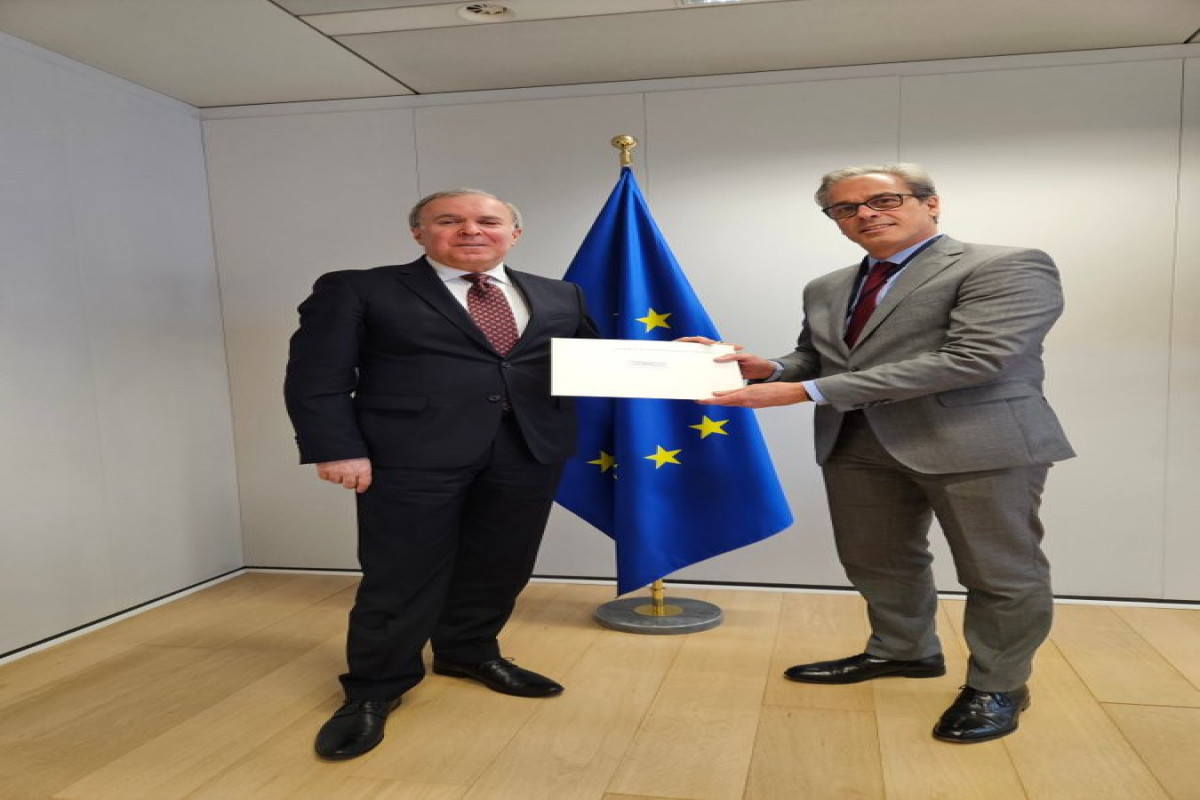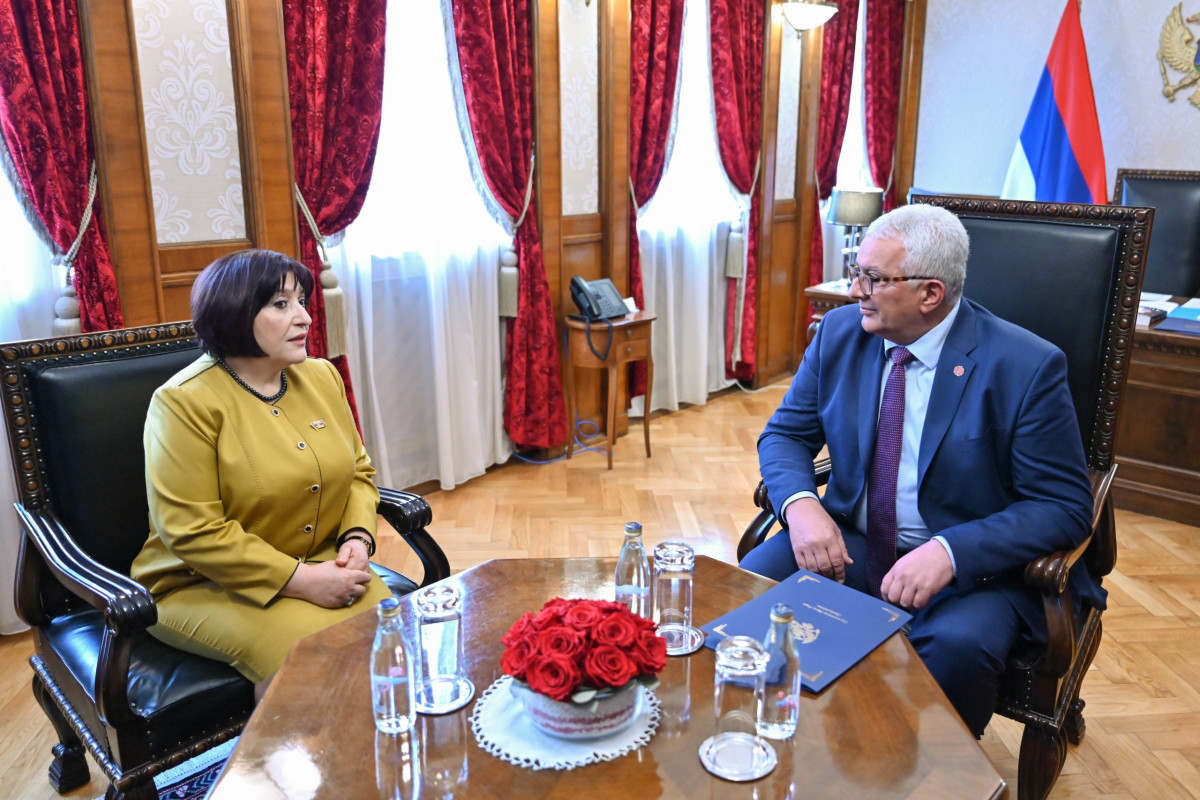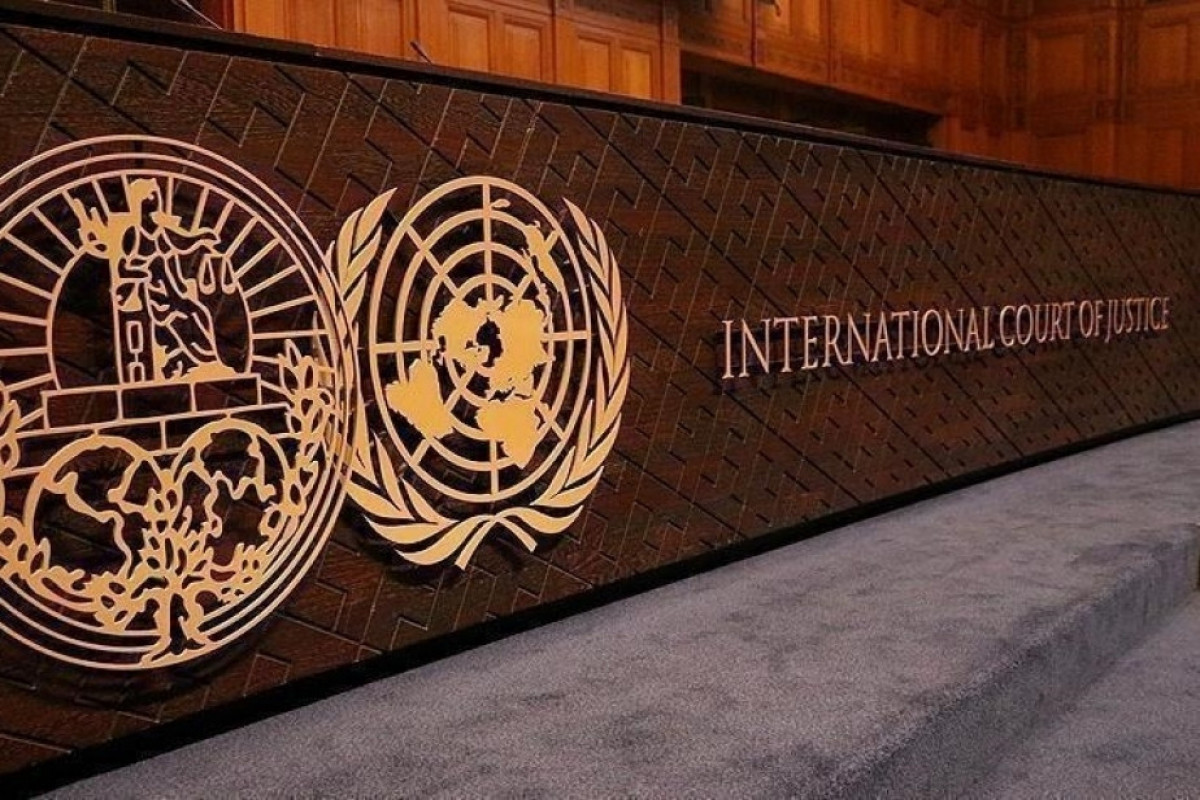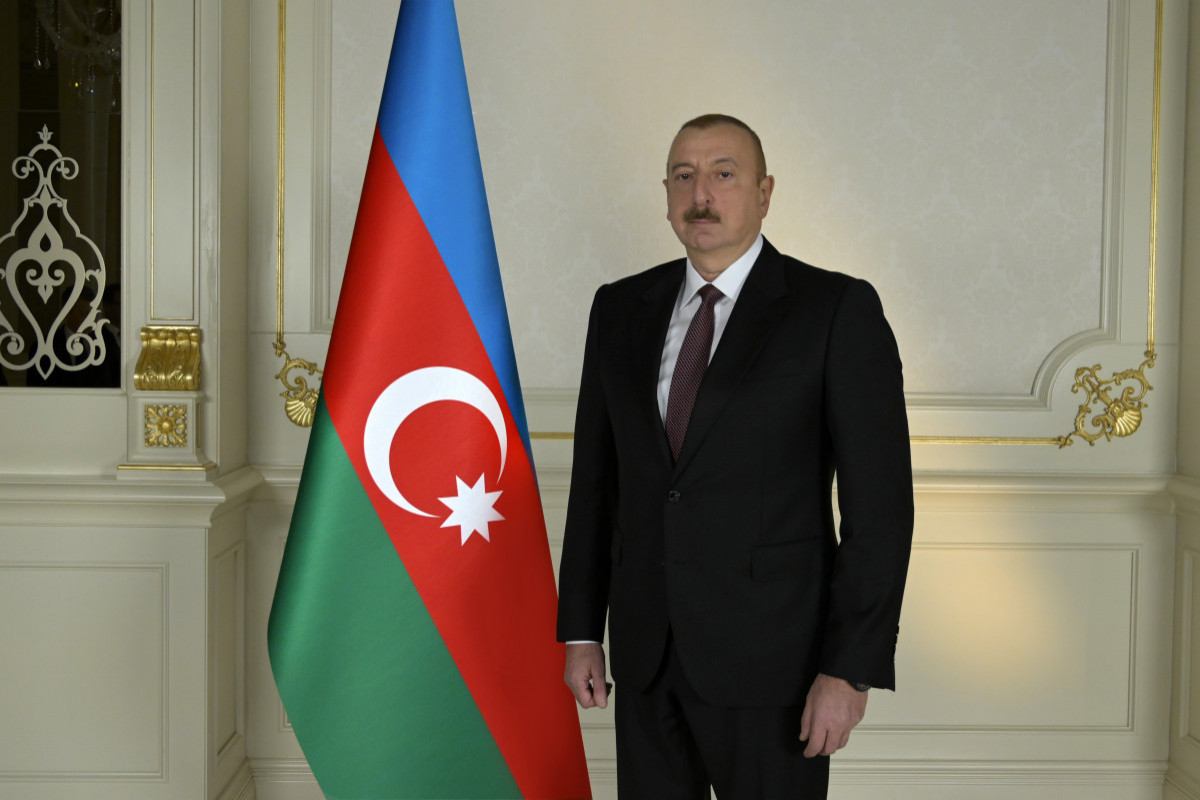Q. Do you have any plan to move your residence from Stockholm to Baku?
Â
A. I have to say that, I am really glad that Sweden opened an embassy in Baku just a few years ago. Before Sweden did not have an embassy in Azerbaijan. Now, we have a permanent representative here with the embassy. As you said, I’m an ambassador based in Stockholm. But I come here very often. I started this mission at the end of January, when presented my letters of credentials to Azerbaijani President Ilham Aliyev. Now, this is May and this is my fifth visit to Azerbaijan. So, me and the team at the embassy are really good team. Even though we are small in numbers, we do a very good job. You know, all foreign services have limitations. The Swedish Foreign Service is under constant control of saving. It comes every year and that is just a matter of fact. We all have to work with the resources that we have and I am really happy with the setup that we have and we can be here. There are no plans to move our residence from Stockholm to Baku, but I will be here often and I found Baku a lovely city.
Q. During the Swedish Foreign Minister Margot Wallström’s working visit to Azerbaijan in February 2016, a number of issues including intensification of the OSCE Minsk Group’s full-team activity were raised at full strength. Since then, just one meeting of the Minsk Group took place. As a member of the group, how could Sweden contribute to the negotiation process in this direction?
Â
A. First, I have to say that I am really happy that the Swedish foreign minister visited Azerbaijan in February. I think this was the first visit that was made since 2009. That is a good sign how Sweden values good bilateral relationship with Azerbaijan and intends to strengthen bilateral ties. And I think one should look upon that visit in that way. Of course, along with economic, cultural and tolerance issues, the Nagorno-Karabakh conflict was discussed during the Swedish FM’s visit to Azerbaijan. Regarding the specific issue that you mentioned, the Swedish minister asked the Azerbaijani counterpart what could actually change the status quo and move the process forward. Holding an enlarged meeting of the Minsk Group was proposed by your minister Mr Mammadyarov. And Mrs Wallström said that if this is something that the parties and the Minsk group co chairs would want, then of course, Sweden would support and participate. It has been a little bit misquoted in the media unfortunately, but the basic point is that Sweden is a member of the Minsk group and we support the work of the co chairs and a negotiated solution to this painful and protracted conflict.
Â
Q. There are opinions that Azerbaijan is dissatisfied with the work of the co-chairs and that reforms should be carried out within this institution, such as replacement of some co-chairs with new ones. Do you think Sweden might make some efforts to be represented again in the co-chairs institution?
Â
A. I think that now we are actually passing through a very sensitive period. There has been a four-day war. There has been escalation on the contact line, resulted in numerous deaths among both sides. There have been people killed after the ceasefire, and there have been intensive discussions, consultations both in bilateral and multilateral ways. You mentioned that the Minsk group held a meeting in this regard and also the co chairs visited Baku, Yerevan and Nagorno-Karabakh. And I think this is not the time for me as a bilateral ambassador to comment on the format issues. I think that tentative steps have been taken at the recent Vienna meeting, and the next meeting is planned to be held in June. I think it is important for all of us to support the work that has been done for the negotiated settlement and to really go back to the negotiating table, because the conflict has no other solution, and I think the escalation shows how dangerous the protracted conflict is. There has been horrible loss of lives during those days among both civilians and soldiers. And the soldiers who died during the recent escalation were very many young men. I find it deeply tragic and that’s why this is the time to look at the negotiations as a tool. And I know that some people here would say that, yes we have negotiated, we have talked, but no results have been achieved. But I think the recent escalation showed the danger of the conflict and that we have to create an opportunity for both Azerbaijani and Armenia and the peoples of the two countries for growth and development. Because having instability, insecurity and the fear of war hinders a lot of good things that can happen in Azerbaijan, which I firmly believe that you deserve.
Q. One of the issues discussed during Margot Wallström’s visit was women’s involvement in the process of conflict settlement. Are there are any projects being implemented or to be implemented in this area?
Â
A. As you know, Sweden is the country that stands up for gender equality everywhere in its development, programmes, foreign policy and human rights issue. This government that came to power almost two years ago, decided to form what we call a feminist foreign policy and I believe this is the first in the world and I know that it has been looked upon a little bit interested. But what our minister is doing and what we are backing is to put women more at the forefront in the conflicts, as there is a lack of female negotiators for conflict resolution. My minister has put together the best women we have in our country that have experience of conflict negotiations. We are going to train a team of younger women with potential to become negotiators. We start in the national framework, and then we will build it to become more international. So, this history of only male negotiators will change. So, we have both a short term process and a longer term process. I know it has been met very positively within the European Union and also within the United Nations and it has seen interest in many countries. When Mrs Wallström was here, she brought up with your minister the possibility of finding ways of involving women in conflict resolution and confidence building. Mr Mammadyarov was very positive in the bilateral meeting that they had. But also in the press conference he mentioned that. Since February, a lot of things have happened on the ground, but we are discussing in Stockholm ways of going forward with this and we hope to come back to our Azerbaijani partners in a little bit to present suggestions. At least, I know that there is a positive approach from Baku to this. We would like to continue working on that and I think that is a good first step. The events in April and what came afterwards really show the need to have the women involved both in confidence building and negotiations. I have also had the opportunity to meet with some of your IDPs. I know the challenge that you have had as a country to host almost a million people, I have met many women who have fled and who have been taking care of their children in places which were not their homes. They have been deeply struck by the war from the very beginning and I see the consequences. So, I hope that we will find good ways to work on this together and I think if you are interested in gender issues. Sweden is a very good partner to have. I worked in Moldova for five years as an ambassador and we did a lot of work in gender.
Q. Does that mean there are no certain proposals in this area?
Â
A. There are no concrete proposals yet, but we will come with that. This conflict involves both women and men. Everyone is a stakeholder, so do women. So, that was resonated with your foreign minister and that’s why we will continue to find ways to work on that. I know that there are civil society and people-to-people contacts between Azerbaijan and Armenia. And they are very straightforward and good. So, I think, there is something to build on, but we will have to think a little bit more and I think, the recent events showed that this is really urgent.
Â
Q. In her meeting with Chairman of the Caucasian Muslims Office Sheik-ul-Islam Allahshukur Pashazade, the Swedish foreign minister said Sweden is interested in benefiting from Azerbaijan’s practice of dealing with refugee issues. Are there any joint projects in this regard?
Â
A. Mrs.Wallström met with Allahshukur Pashazade, as well as with Azerbaijan’s Deputy Prime Minister Ali Hasanov, who is also the head of Azerbaijan’s State Committee for Affairs of Refugees and IDPs. I would say that the refugee issue in general was actually a large part of the discussions held with Azerbaijan’s foreign minister. Sweden is a European country that has received the most refugees over the last few years. Over the last three years Sweden has received 300,000 refugees (160,000 refugees in 2015). Most of the refugees came from Syria, Afghanistan and Somalia. We have had a very large inflow into a small country. We have always been open and friendly to receive refugees that have fled. We always had a good open door policy. But over the last few years there has been a true challenge for us. We had to use all of our local and also government resources to really cope with this. So, when the Swedish FM was here that issue was discussed. An of course, what’s important here is the issue of tolerance. I know that Azerbaijan is a country with the history of tolerance in many ways and I would say you an example to other countries and the region. And tolerance for all of us in this new international climate is going to be something that we as human beings have to deal with. So, the Swedish FM listened very carefully, especially to the Deputy Prime Minister Hasanov, who told her what you have gone through and the work that you have done with IDPs. At the meeting with CMO Chairman Pashazade, she said Sweden will look into the possibilities to send Swedish experts to come to Azerbaijan to see how you have worked on that. Because we need to learn each others’ experiences. Each experience is unique, but you have had too many years experience on that. In December last year Sheik-ul-Islam Pashazade visited Stockholm and this was the fine initiative from Azerbaijan. We had a seminar with your embassy on tolerance and interreligious issues. The Azerbaijani delegation led by Pashazade met with a number of officials, including the minister of culture and democracy, members of parliament. I think this is also an issue that your president often brings up. So, bilaterally we will be working on tolerance.
Q. Some say Eastern Partnership has turned out to be a failed project. Do you agree with opinions? Â
Â
A. No, I do not. I think we should look back and remember the time when and why the Eastern Partnership was created. For the European Union, it is of course a strong interest to have stability, democracy, and economic prosperity in our neighborhood. And, we should remember that the countries in our neighborhood were seeking closer relationships with the EU to partake in the democracy and economic prosperity that has characterized the EU project over many years. The Eastern Partnership is today a joint initiative involving the EU, its member states and six eastern European partners. This joint project is based on a clear commitment to the principles of international law and fundamental values - democracy, the rule of law, human rights and fundamental freedoms. It also encompasses support for a market economy, sustainable development and good governance.
I believe that the offer given by the EU to our eastern partners was a truly good one, one of closer political association and economic integration. Such a relationship carries mutual responsibilities, and for the partners that wanted that close partnership, that meant embarking on a clear reform agenda. Realizing the challenge with reforms and the great needs, the EU offered substantial assistance packages - support for reform - to assist partners in this reform and transition process, to strengthen democracy and build competitiveness. Also EU member states, including Sweden, offered large reform assistance programs. I served in Moldova as ambassador for five years, and Sweden was one of the largest bilateral donors to support the country in its reform process. Some of these reforms are difficult and challenging, take time, and require political vision and courage.Â
The EU is the largest internal market in the world with 500 million consumers, and the standards on our market are in many cases not only the EU's but they are international. Access to the EU's internal market is attractive as it opens opportunities for economic growth and for predictable economic relationships. If a country wants to be closely politically associated and economically integrated then the standards and rules that we have created for us must also apply to those who want that access, to ensure fair competition and equal treatment for everyone in that market.
Â
I would say that the EU's offer was a fine one and it is of course still there. Our approach to the Eastern Partnership has always been transparent and based on the interests and needs expressed by our partners. The EU does not see EaP as a geopolitical game, on the contrary, we wish to build a stable and prosperous area for the benefit of all.
Â
Q. In general, what’s your view of the future of Azerbaijan-EU relations?
Â
A. I look upon that with very positive eyes. I am glad that the negotiations between the European Union and Azerbaijan on a new legal basis will start soon. Sweden is a strong supporter that the negotiations start as soon as possible and also we will form a broad agreement. Because Azerbaijan is important for both EU and Sweden. I think you have a very good economic potential. What I have seen since I came here in January is a new will for reform and a new will to turn Azerbaijan into an investment-friendly country. I have seen the changes that have been done in customs. I see that a change maybe coming in other agencies and areas as well and that legislation will make it easier to form business partnerships and to get investors here. That means the strong will on your side, the will and the ability to bring the reforms forward and our interest in a prosperous and democratic Azerbaijan. When I came here in January your president and minister said that Azerbaijan really wants to form new economic ties with Sweden, and I know that there are areas which are priority to you. We have recently held here an EU business forum, the focus of which was agriculture, tourism and transport. But one of the issues that were mentioned to me in my tenure was ICT. Sweden is a world leading country, when it comes to IT issues. So, these days we had a fine Swedish delegation with eight companies. We have had meetings in your ICT Ministry with the deputy minister Elmir Valizade that was very open, warm and welcoming. We also held meetings with various companies. We held a business seminar to introduce the Swedish companies to potential Azerbaijani partners. We see a good potential for the Swedish companies, we see a welcoming approach by the Azerbaijani side. The companies will continue their contacts. If this goes well then, of course, we will look into other areas for other companies to come here.
Q. The Azerbaijani and Armenian presidents last week met in Vienna. The parties reached an agreement on creating a mechanism to investigate incidents and expanding the Office of the Personal Representative of the OSCE Chairman-in-Office. How would you comment on this meeting?
Â
A. Frankly speaking, I have actually read what has been in the media, so I do not know more than you do on this. I hope that the process that was intensified in Vienna will continue and that the meeting that has been planned in June for some time will take place. And both Azerbaijan and Armenia will be willing to engage thoroughly in negotiations to go forward. I think it is important to leave the negotiators with the partners to do the work.
Â
Q. What is the position of Sweden with regard to the Nagorno-Karabakh conflict?
Â
A. Sweden’s position regarding the Nagorno-Karabakh conflict has been known for many years and it has not changed. The only possibility is a negotiated settlement. It has to be based on international law and three principles that have been discussed many years ago. But I also want to tell you about what we are doing here. I had visited two IDP camps – one is very modern place with a school and the other is very old. The embassy, since we do have a warm heart for issues of refugees, decided a quite while back to focus on children. As you know, Astrid Lindgren, an author of the most beloved children's books, is from Sweden. I am sure that you are familiar with Karlsson - “Karlsson on the Roofâ€. Together with the Swedish company TeliaSonera/Azercell (sponsor), we translated three of Astrid Lindgren’s books into Azerbaijani and we distributed these books to 610 schools for IDP children that they could actually enjoy the rich literature from us in their own language. And that was so much liked, that we decided to continue, and now we are working on financing a play that will be played and set up at the Azerbaijan State Theatre of Young Spectators. This is collaboration between the theatre here and a really good theatre director from Sweden, who has come here and will come back again. So, this will be a joint Swedish-Azerbaijani project for the kids. We will continue to think what we can do in the future.
Â
Q. Are there any joint humanitarian projects between Sweden and Azerbaijan?
Â
A. Sweden is one of the largest donors to the United Nations. So, if you have programmes here through the UN for IDPs, then a large part of that comes from Swedish money. We have no bilateral projects now and the embassy has a small budget for cultural issues. We can, of course, apply for extra funding time and time again. We will continue to do so. I think there are areas where we can find common ground.
Q. Would you like to add something?
Â
A. During the time that I will be ambassador, I will do what I can to strengthen the ties between our countries. Because I do believe that we have a great potential. Azerbaijan is important for both Europe and the EU. This is a country at the crossroads of civilizations and at the geostrategic position in the world. And I think we do have common issues that we can work on. To keep the dialogue open as much as possible is crucial. I have felt very welcome in Azerbaijan since I started.
Â
Â
Â
Â
Â
Â













